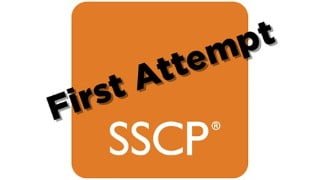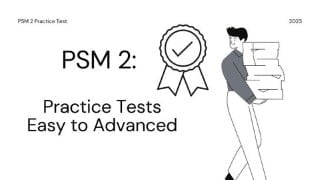SSCP – Systems Security Certified Practitioner – upd – Jan23
Advance your cybersecurity career with the SSCP certification. Gain the technical skills and knowledge needed to secure critical assets and impress potential employers.
Become an SSCP – Systems Security Certified Practitioner
The SSCP, or Systems Security Certified Practitioner, is a certification for cybersecurity practitioners tasked with monitoring information systems and reacting to security incidents. Becoming an SSCP could demonstrate to potential employers that you have the technical skills needed to advance in your cybersecurity career.
Earning a globally recognized advanced security administration and operations certification like the SSCP is a great way to grow your career and better secure your organization’s critical assets.
SSCP certification demonstrates you have the advanced technical skills and knowledge to implement, monitor and administer IT infrastructure using security best practices, policies and procedures established by the cybersecurity experts at ISC2.
Prove your skills, advance your career, and gain the support of a community of cybersecurity leaders here to help you throughout your career.
Preparing for this exam is vital for success, and these exams will help you master the concepts in the Systems and Application Security domain. In this course, Systems and Application Security for SSCP®, you’ll learn to design and maintain security controls in information systems and applications. First, you’ll explore the characteristics of malicious code and learn how to identify malicious activity. Next, you’ll discover end point security and zero trust networks. Finally, you’ll learn how to address security principles in the cloud. When you’re finished with these exams, you’ll have the skills and knowledge of systems and application security needed for the SSCP® examination.
Jobs that hire for SSCP
The SSCP is designed for security professionals that work with operational security. Here are just a few of the job titles on LinkedIn that request or require SSCP certification:
Network analyst: $81,627
Systems administrator: $81,620
Security analyst: $83,433
Threat intelligence analyst: $96,260
Systems engineer: $111,686
DevOps engineer: $132,777
Security engineer: $129,989
*Salary data represents the average yearly pay including base salary and additional wages according to Glassdoor (November 2022).
Who Earns the SSCP?
The SSCP is ideal for IT administrators, managers, directors and network security professionals responsible for the hands-on operational security of their organization’s critical assets, including those in the following positions:
Network Security Engineer
Systems Administrator
Security Analyst
Systems Engineer
Security Consultant/Specialist
Security Administrator
Systems/Network Analyst
Database Administrator
Becoming an SSCP comes with several potential benefits for the right candidate, including the possibility of a high-paying, in-demand position. By achieving SSCP status, you could also:
Learn new skills that you can use on the job
Validate your skills and commitment to cybersecurity to recruiters and hiring managers
Enhance your resume to make you more marketable
Fulfill requirements for security clearance
Gain access to a community of fellow cybersecurity professionals
What to expect from the SSCP exam
Becoming a SSCP requires passing a certification exam designed to test your knowledge in seven different security topics. Here’s a quick look at the SSCP exam details.
Certification SSCP Cost $249
Number of questions 125
Type of questions Multiple choice
Time to complete 180 minutes
Passing score 700 out of 1000 points
Prerequisites 1 year cumulative work experience
Requirements
To qualify to take the SSCP exam, you need at least a year of paid work experience in one more of the exam domains. This could include full or part-time work, as well as paid or unpaid internships.
Earning a bachelor’s or master’s degree in cybersecurity, computer science, computer engineering, computer systems engineering, management information systems, or information technology (IT) also satisfies the work experience requirement.
Lifetime access to all upcoming updates for the practice test. Pass in your first try and get certified in cybersecurity.
You have 30 days to get a refund if you don’t think these tests are useful.
Who this course is for:
- Chief Information Security Officer
- IT Professionals
- Software Developers
- Security Manager
- Security Auditor
- Network Architect
- Anyone who wants to become an expert.
User Reviews
Be the first to review “SSCP – Systems Security Certified Practitioner – upd – Jan23”
You must be logged in to post a review.







There are no reviews yet.